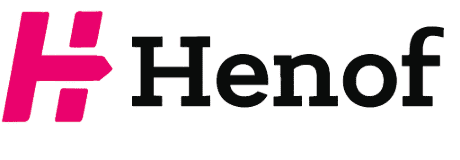In today’s digital age, data security is more critical than ever. With cyber threats evolving at lightning speed, data breaches and leaks have become a pressing concern for both individuals and businesses. A recent buzzword causing concern in cybersecurity circles is TheJavaSea.me Leaks AIO-TLP. This comprehensive guide explores what it is, the dangers associated with it, and how you can protect your digital footprint.
Table of Contents
What is TheJavaSea.me Leaks AIO-TLP?
TheJavaSea.me Leaks AIO-TLP refers to the exposure of potentially sensitive or unauthorized data found on the domain TheJavaSea.me. The term “AIO-TLP” typically combines two important cybersecurity terms:
- AIO (All-In-One): Suggests a comprehensive tool or package that may aggregate multiple types of data or functionalities.
- TLP (Traffic Light Protocol): A classification system used to label information sensitivity, often marked as TLP:RED, TLP:AMBER, etc.
Together, TheJavaSea.me Leaks AIO-TLP may describe a case where classified or sensitive information has been improperly stored, distributed, or exposed through a platform using these mechanisms.
Why TheJavaSea.me Leaks AIO-TLP is a Major Concern
Data leaks from platforms like TheJavaSea.me can have far-reaching consequences. Whether the data involves individuals or major corporations, the fallout can be devastating.
Potential Risks Include:
- Identity Theft
- Financial Fraud
- Reputational Harm
- Intellectual Property Theft
- Legal Liability
The nature of AIO packages makes it easier for malicious actors to compile and distribute extensive amounts of leaked information in one place, increasing the scope of damage.
Types of Data Potentially Leaked
Leaks labeled under TheJavaSea.me Leaks AIO-TLP may involve:
- Personal Identifiable Information (PII): Names, emails, addresses, phone numbers, social security numbers.
- Financial Records: Credit card details, bank account numbers, transaction logs.
- Corporate Data: Trade secrets, internal memos, client information, source code.
The Role of TheJavaSea.me in Data Leaks
The domain TheJavaSea.me appears to operate as a hub where leaked or compromised data may be uploaded, shared, or accessed. This makes it a point of concern for data privacy advocates and cybersecurity experts.
Key Characteristics of TheJavaSea.me
- Content Hosting: Allegedly hosts unauthorized or leaked content.
- Public Accessibility: May provide open or semi-restricted access to data.
- Legal Ambiguity: Raises serious ethical and legal issues, especially under global data protection laws like GDPR and CCPA.
How Cybercriminals Exploit These Leaks
Cybercriminals often leverage leaks like those on TheJavaSea.me to:
- Sell personal data on dark web marketplaces.
- Launch phishing and social engineering attacks.
- Commit identity fraud or financial theft.
- Conduct corporate espionage.
Impact on Individuals and Organizations
For Individuals:
- Privacy Violations: Sensitive data exposure can lead to harassment or doxxing.
- Financial Loss: Unauthorized use of payment information or stolen credentials.
- Digital Identity Theft: Attackers may impersonate victims online.
For Businesses:
- Brand Damage: Leaks harm customer trust and brand integrity.
- Regulatory Fines: Violations of data privacy laws can lead to legal penalties.
- Business Disruption: Downtime and recovery efforts affect operations.
How to Protect Yourself from Data Leaks Like TheJavaSea.me Leaks AIO-TLP
Whether you’re a casual internet user or a corporate entity, you can take several precautions to guard against threats related to TheJavaSea.me Leaks AIO-TLP.
For Individuals:
- Use Strong, Unique Passwords: Consider a password manager to avoid reuse.
- Enable 2FA: Adds another layer of protection to your accounts.
- Monitor Credit Reports: Regularly check for suspicious activity.
- Be Careful What You Share: Limit exposure of sensitive data on social media or untrusted websites.
For Organizations:
- Encrypt Data: Protect files in storage and transit with strong encryption.
- Conduct Security Audits: Regularly assess systems for vulnerabilities.
- Educate Employees: Train staff on phishing awareness and data handling best practices.
- Backup Systems: Maintain up-to-date backups in case of compromise.
Legal Implications of Data Breaches
Leaking or distributing data without consent can lead to serious legal consequences. Organizations must understand and comply with relevant data protection regulations.
Notable Regulations:
- GDPR (EU): Strict on consent and breach notification.
- CCPA (California): Grants users the right to access and delete personal data.
- Global Breach Laws: Vary by country but often require prompt disclosure to affected parties.
Cybersecurity Measures to Prevent Future Incidents
Investing in cybersecurity is not optional—it’s a necessity. To combat threats like TheJavaSea.me Leaks AIO-TLP, organizations must adopt a multi-layered defense approach.
Best Practices:
- Next-Gen Firewalls & Antivirus Software
- Zero Trust Security Models
- AI-Driven Threat Detection
- Secure Network Segmentation
- Incident Response Planning
The Future of Data Security in a Post-Leak Era
As the frequency and complexity of data breaches grow, emerging technologies are stepping in to offer better protection:
- AI & Machine Learning: Enhancing threat prediction and anomaly detection.
- Blockchain: Ensuring transparency and data immutability.
- Quantum-Safe Encryption: Future-proofing security protocols against quantum computing threats.
Final Thoughts: Staying Vigilant in the Digital Age
TheJavaSea.me Leaks AIO-TLP is a stark reminder of the digital risks we face in 2025. With cyberattacks on the rise and data being the new currency, taking proactive measures is no longer optional—it’s essential. By staying informed, embracing cybersecurity best practices, and respecting data privacy laws, both individuals and organizations can reduce the risk of becoming the next headline.

